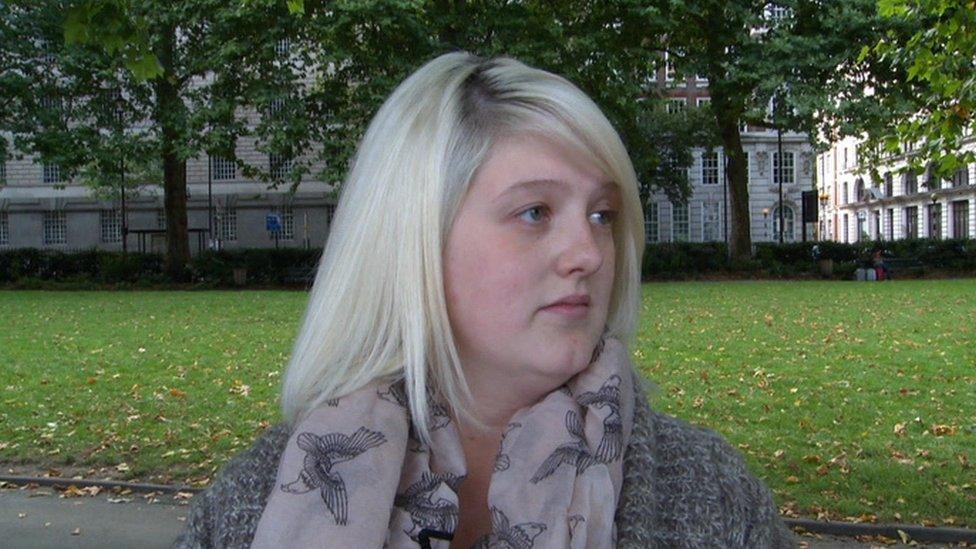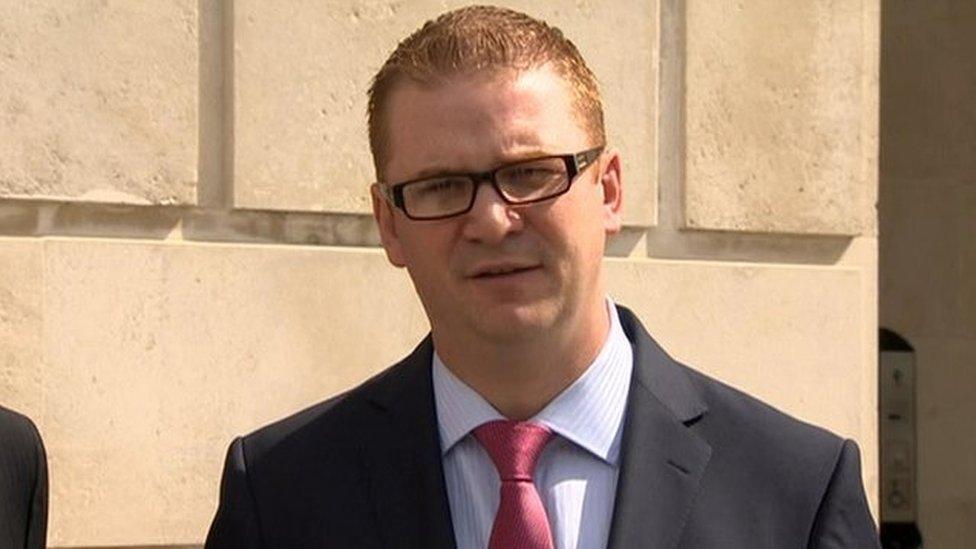Abortion: NI health minister says guidelines will bring clarity to clinicians
- Published

Northern Ireland's abortion law is different from the rest of the UK
The health minister says the newly agreed guidance on abortion should bring some clarity to health professionals.
Simon Hamilton says the guidance will help clinicians when dealing with the most difficult cases.
Northern Ireland's abortion law differs from the rest of the UK.
Access to termination is only permitted if a woman's life is at risk or there is a permanent or serious risk to her mental or physical health.
The long-awaited guidelines are aimed at providing clarification for medical staff on when a termination is legal.
Mr Hamilton recognised that the issue was "an area of public policy where people hold differing views".
He added: "My focus is on ensuring that health professionals who have to deal with extremely difficult cases have the clarity around the law that they have been asking me for."
Prosecution
The lack of clarity on the issue has been a sticking point for decades, and clinicians have expressed fear that they could face prosecution for carrying out abortions, based on their interpretation of a permanent or serious risk to woman's mental or physical health.
The publication of the latest set of abortion guidelines follows years of talks between the Department of Health, the Department of Justice and senior clinicians.
It also comes after a series of legal challenges against the current law and a high-profile but unsuccessful campaign to legalise abortion in cases of fatal foetal abnormality.

Campaigner Sarah Ewart said all the guidance in the world cannot change Northern Ireland's "19th Century" abortion law
A fatal foetal abnormality diagnosis means doctors believe an unborn child has a terminal condition and will die in the womb or shortly after birth.
The campaign was led by Northern Ireland woman Sarah Ewart, who spoke out about her own experience of travelling to Great Britain for an abortion in 2013, after doctors told her she was carrying a baby with anencephaly, that had no chance of survival.
Reacting to Thursday's development that the NI Executive had agreed that the guidelines are to be published, she said the new guidelines "may help some women, but it won't help me and other women with fatal foetal diagnoses".
Ms Ewart lobbied politicians for more than two years on the issue but in February, Northern Ireland Assembly members voted against legalising abortion in cases of fatal foetal abnormality.
Breedagh Hughes of the Royal College of Midwives said she hopes that the guidance provides clarity for medical professionals.
"They need a very clear exposition of what the law is and what the law says is legal," said Ms Hughes.
"They need to know the legal context within which they are working.
"Until the legislation is changed, midwives and medics are working with the legislation that stands and that is the legislation that must be outlined in the guidelines."
Ms Hughes said a major concern for medical professionals is the rise in the numbers of women accessing abortion pills on the internet.
Politicians also agreed on Thursday that the working group on abortion set up by Mr Hamilton will now include the Department of Justice.
Mr Hamilton was asked to set up the working group last month by First Minister and Democratic Unionist Party leader Arlene Foster.
On Friday, the minister indicated progress on the creation of the working group, saying he and Justice Minister David Ford both agree that "it should engage with healthcare professionals and those people directly affected by fatal foetal abnormality, and take account of recent consultation on the question of legislative change, as it goes about its important work".
- Published25 March 2016

- Published3 March 2016

- Published11 February 2016

- Published9 February 2016
